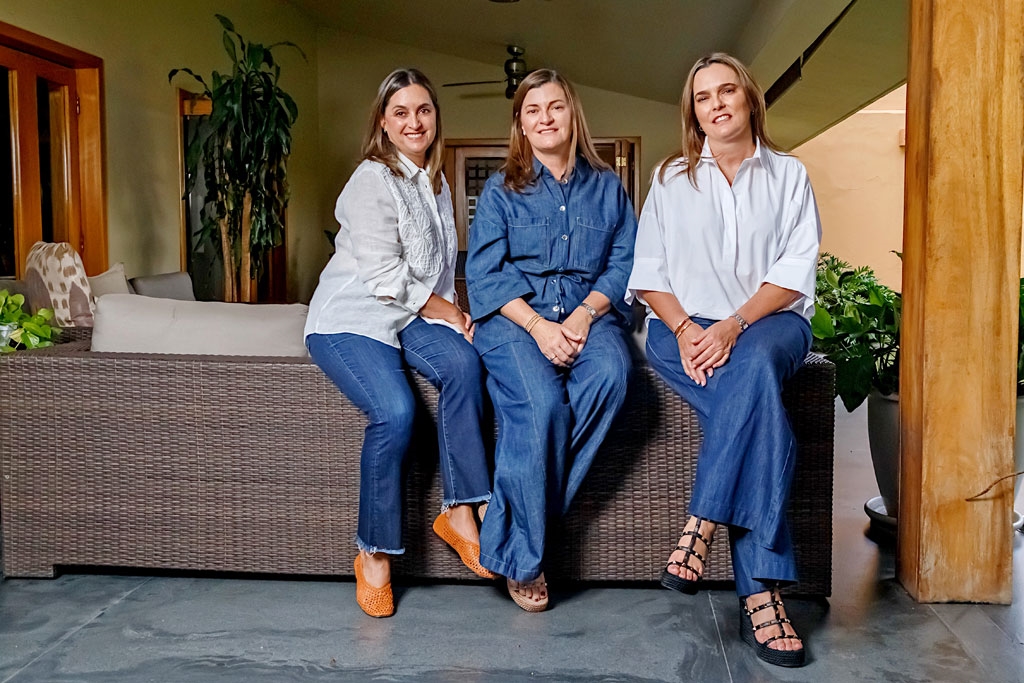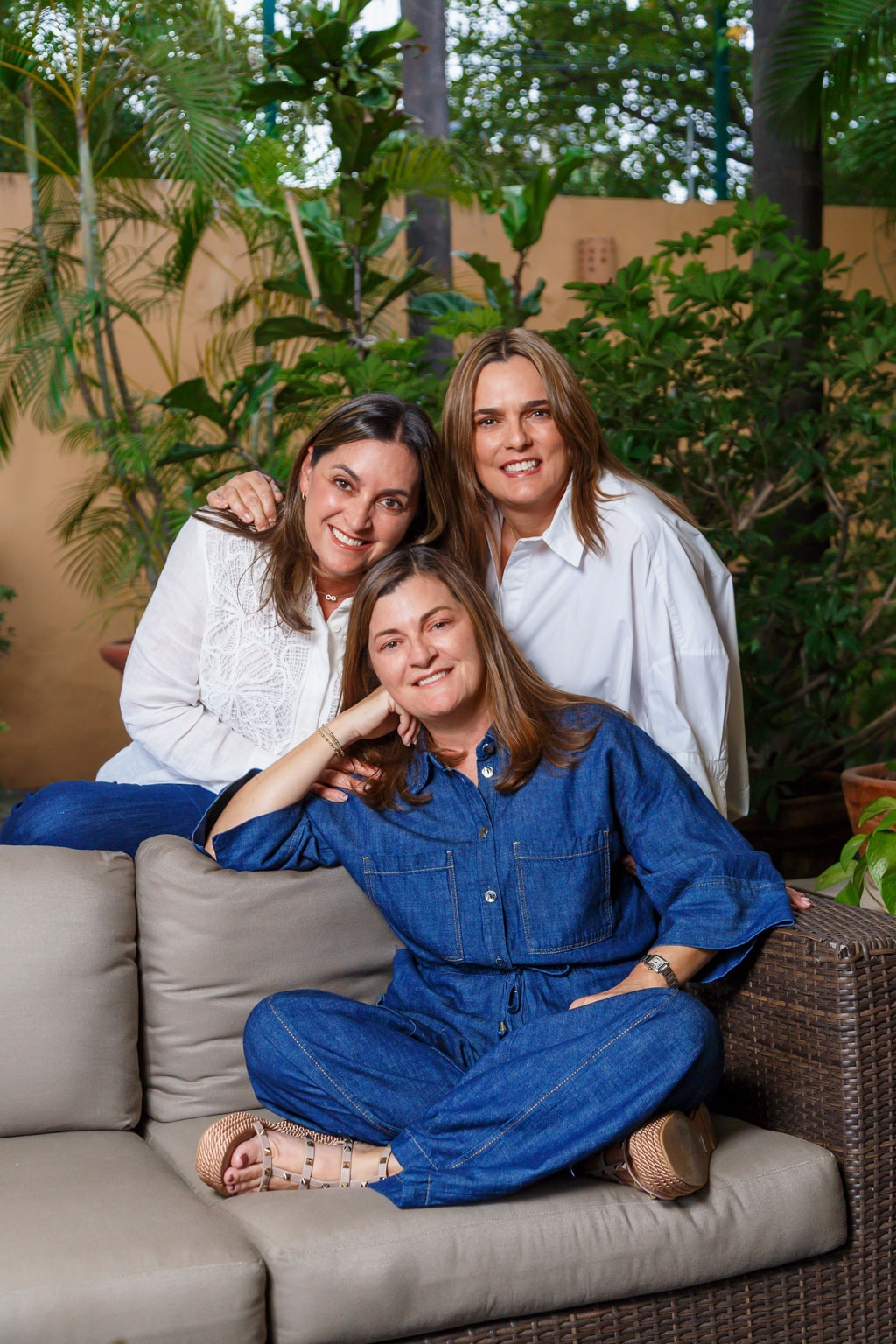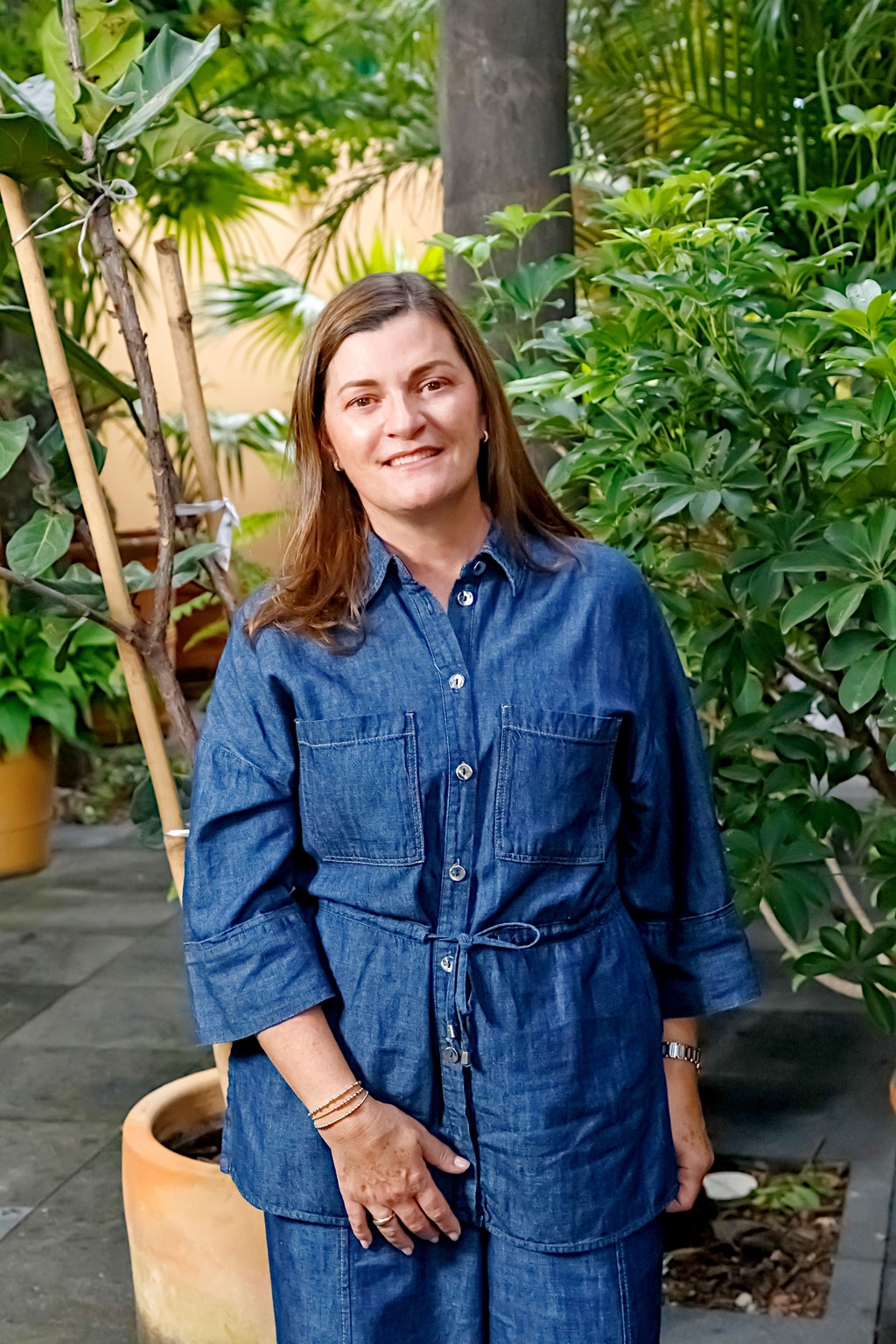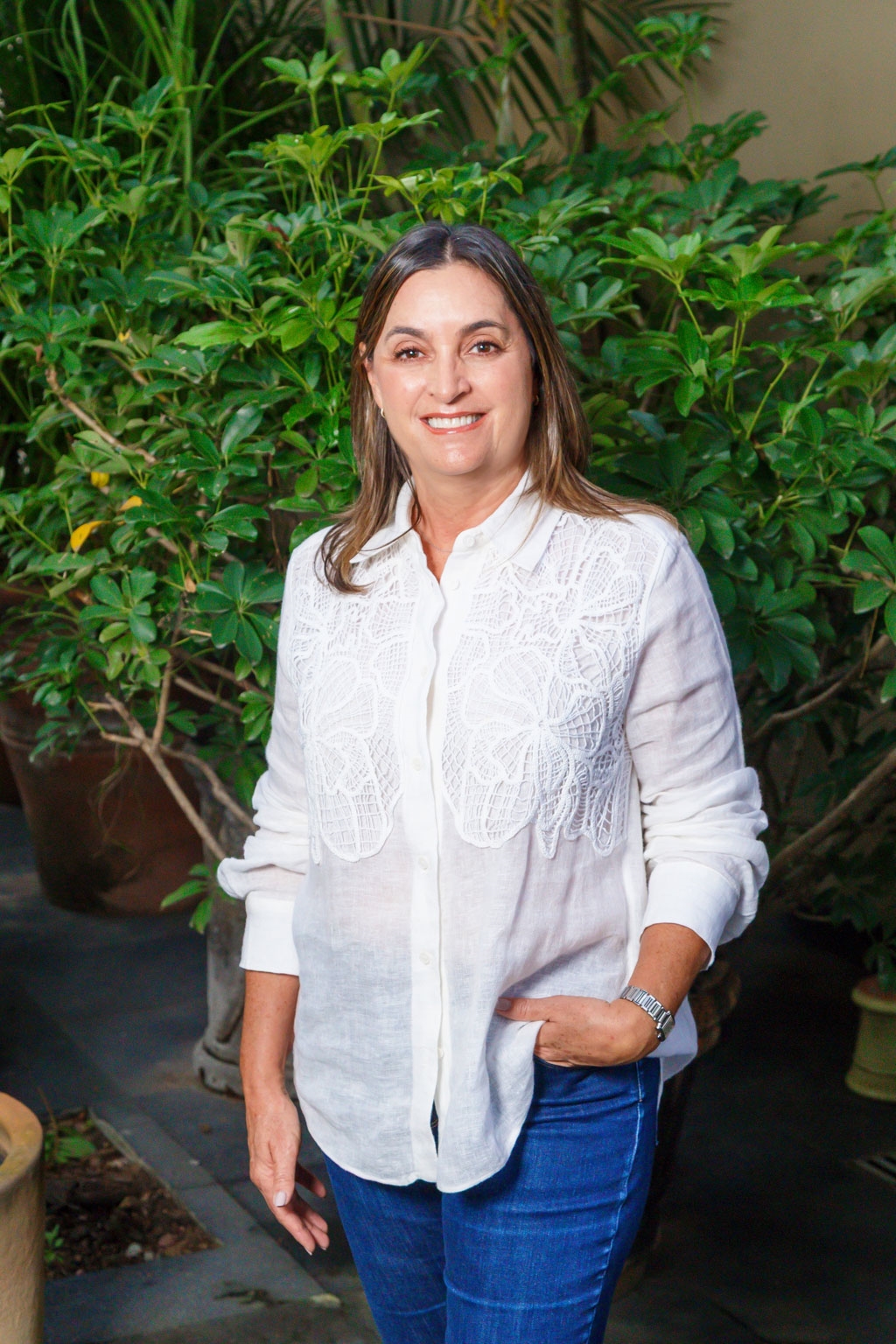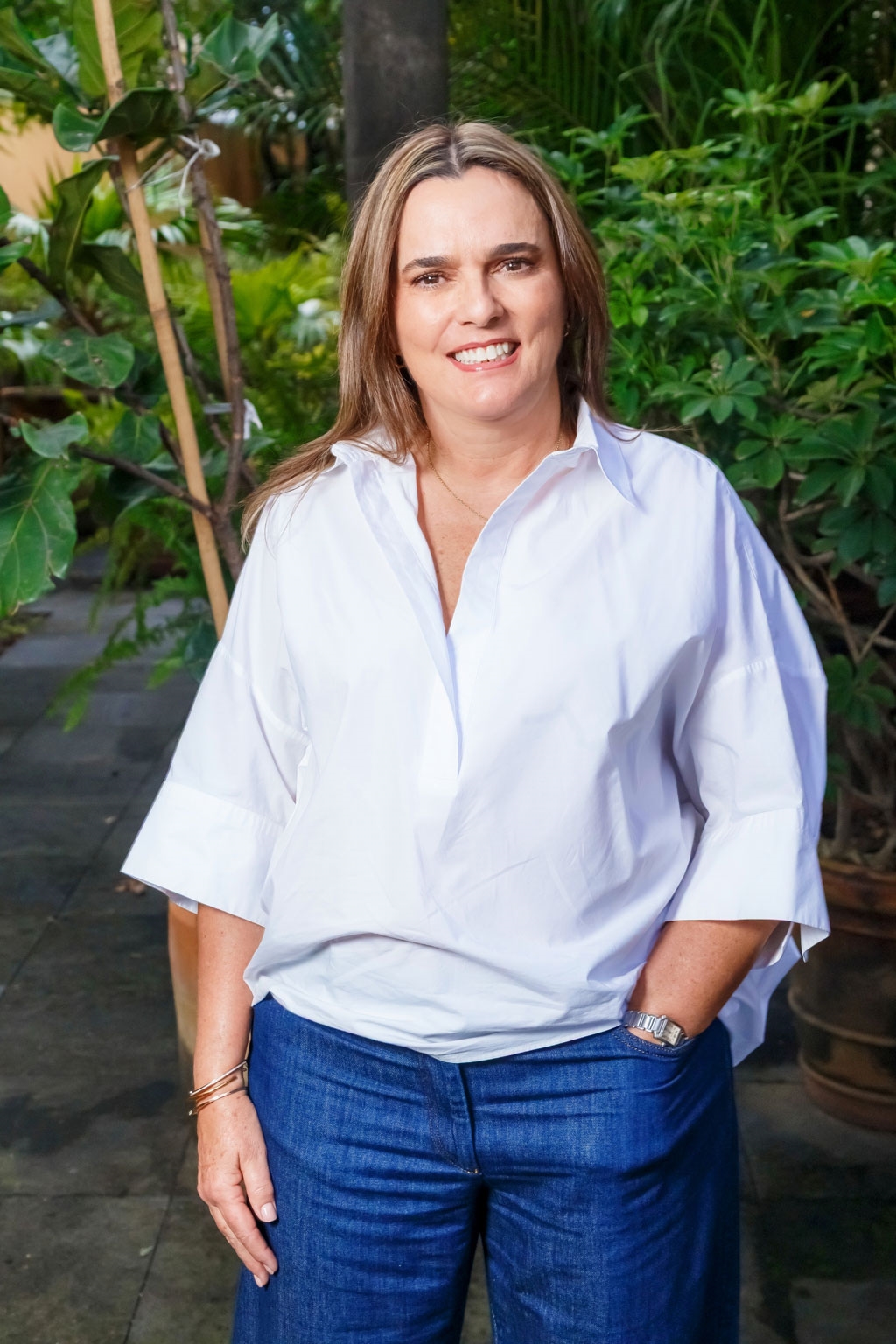15 years ago, Alejandra Camarasa Tatay received news that radically transformed her life: she had stage 3 inflammatory breast cancer, a disease that, as her doctor explained to her, was rare and very aggressive, so they had to act immediately and fight it with the same force.
“I went outside of Mexico (to Houston) and I stayed, I went for four days and I stayed to live for two and a half years,” says Alejandra.
“First there were chemotherapies so that the inflammation would go down, after the chemotherapies it was a mastectomy, and after the mastectomy it was radiation twice a day for a month and a half. In total there were 16 chemotherapies.”
This treatment was administered to her over the course of a year, during which time she was always accompanied by her sisters Pilar and Jacky, who since they found out about her diagnosis devoted all their attention to ensuring her well-being.
“The most important thing was her recovery, doing everything possible so that she would be well as quickly as possible with the least suffering,” Jacky shares.
“We wanted her to know that we were with her in everything, in every consultation, in every treatment, in every difficult day. Our focus was to convey calm, hope and support, even though inside we were sometimes afraid,” says Pilar.
It was a very difficult time for the Camarasa Tatay family, but thanks to the firm support of all their loved ones and the great attitude that Alejandra maintained, they survived the adversity.
Through thick and thin
Alejandra underwent a very invasive process to be able to heal completely: not only did she have to deal with chemo, mastectomy, radiation and medications, she also had to undergo two operations, one to remove her womb and ovaries, since hormones such as estrogen and progesterone stimulated the growth of cancer cells in her body, and another to have her breast reconstructed.
“I’m already discharged, I go for my check-ups every year, and they do the normal things, calcium, they measure my blood, mammogram on the other side,” she explains.
“And a year ago I finished taking my last pill, I took one pill first for five years, then when I removed my womb and ovaries they changed the pill, and until last year I stopped taking it, it was preventive. All of that was preventive because I was positive for HER2 and hormones.”
Alejandra, Pilar and Jacky agree that the three of them have strong personalities that have led them to confront each other at different stages of their lives, but they also know that they can always count on each other, since sisterly love is more powerful than anything.
“We accompanied her as much as possible: physically when we could, and emotionally every day. We listened to her, we encouraged her, we helped her with practical things, but above all we tried to maintain her spirits and normality as much as we could. We learned that everyday love (a call, a meal, a shared laugh) can be great medicine,” shares Pilar.
For her part, Jacky says that from the beginning she let Alejandra know that she was not alone and could count on her, even if that meant putting her life aside to focus on her sister’s recovery.
“As she was diagnosed and her illness was treated outside the country, I went with them to help them settle into their new house, and then I tried to go see her approximately every month and a half, and I stayed there for a week.
“Many times I had to accompany her to her chemo or radiation treatments, this during the two years she was away. We were also with her at the time of her two surgeries (one to remove her womb and ovaries, and another to reconstruct her breast).
“Another thing I proposed was to talk to him on the phone every day, even if it was just 3 minutes, but it was a way to feel close, and I think I achieved it, and at that time it was not as easy as it is now, it was long distance and a landline.”
Renewed hope
A cancer diagnosis not only affects the patient, it also impacts all the people who surround and love them.
“Seeing someone you love so much face something so uncertain shakes you deeply. But, at the same time, that situation united us much more as a family. We learned to value each day and accompany her with strength and love, even in the most difficult moments,” Pilar confesses.
“We all react differently, but each one lives their process in their own way. You are filled with doubts, uncertainty, fear of not knowing what is going to happen, what the process is going to be, how long. Fear, a lot of fear. The word cancer is very strong and you need to learn to live with it, assimilate it, and then you realize that there is always hope,” Jacky shares.
Alejandra says that her paternal grandmother, María Molas (RIP), also had this disease, so the possibility that one day she could suffer from it was always latent.
“My dad’s mother had breast cancer. We learned to live with her and go to her check-ups, she never recovered, so we learned to live with her seeing her without a breast.
“I remember when I was little I said ‘what if I get cancer?’, like I treated it very like that, and she died at 93 years old and was always well-adjusted, so I kind of said ‘if my grandmother didn’t die all those years ago, I’m not going to die either’. At that moment I didn’t think I was going to die, even though they told me it was aggressive.”
Because she had to face this challenge, Alejandra began to fear that breast cancer could be genetic, but after undergoing some studies she discovered that this was not her case and that such a condition was not something she could inherit to other women in her family, which gave her peace.
It is better to prevent
To conclude, Alejandra highlights the importance of being alert to any change or sign you see or feel, as that can mean the difference between life and death.
“It is important to know your body, listen to it and explore yourself,” she says.
“I looked at myself and said ‘it’s not good’, but there was no lump, because many times there is no lump, there are many types of breast cancer and in the inflammatory case there was no lump, it was the skin, it was my breast growing. It is being alert, you can self-examine and not find a lump, rather you have to know your breasts and know yourself, the texture of the skin, if your nipple is secreting, some depression, there are many red flags of any type of cancer.
Family members, take note
When Alejandra fell ill with breast cancer, the blood bond that unites her with her sisters Pilar and Jacky became a shield of love that helped her move forward.
Now, the three share advice for the loved ones of people going through a similar situation:
Alejandra
“Accompany them and pamper them, I was in a tremendous mood, when one is sick you can’t ask much of the other person because they are giving you so many chemotherapies, they are giving you so much medicine, that you are not really at 100, so be patient.
“That they put up with them, because they put up with me, and that they cuddle them a lot. And that nothing is personal, that they don’t take it personally, because we become a little stubborn with so much stuff.”
Jacky
“Attitude is the best medicine, always support your loved ones with the best attitude, and see them positive, with the hope that everything will turn out well.
“Give them a lot of love, a lot of affection, they need to feel supported so that they also have a good attitude. Don’t leave them alone, always accompany them in their process.
“Ale always had the best attitude and that was key to her recovery. Ale was a great teacher for all the people who love her.”
Pilar
“Don’t forget to accompany them with love, patience and presence. Sometimes you don’t have to say much, just be there. Also take care of your own emotional health, because supporting someone with cancer is an intense path. And trust, with love, medical support and inner strength you can get ahead.”
Check out this reel of the event that we published on Instagram!
The post Alejandra Camarasa defeated cancer supported by her sisters appeared first on Veritas News.
